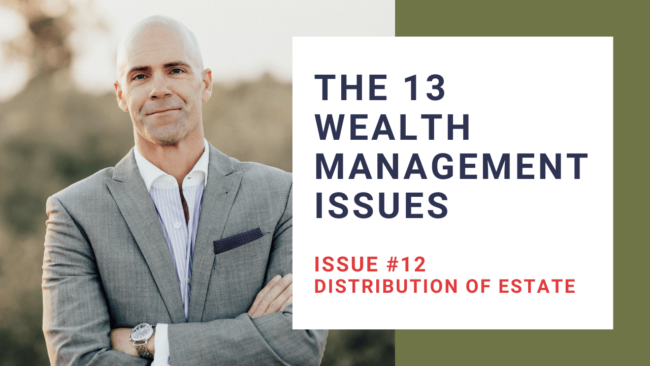
The Top 10 Most Common Financial Mistakes People Make
Over 24 years you hear about and experience the mother lode of mistakes. Channeling my inner David Letterman, here’s a top ten list.
10) Multiple Money Managers
Marc has $4 million split with two managers. One takes a very conservative approach. The other is very aggressive. How does Marc determine who’s doing the better job when one advisor is taking much less risk while the other is betting the farm.
9) Overlapping Holdings
What if Marc has a bunch of mutual funds. Is he diversified congruent with his risk profile? Does his portfolio miss entire asset classes? Concern yourself less with the notion of high returns and the occasional glory moments of performance from a single sector or stock. Rather, settle in and embrace the benefits of asset allocation*.
8) Market Timing
Timing isn’t everything in investing. In fact, Peter Lynch, manager of the Fidelity Magellan Fund shared how greater than 50% of investors in his fund lost money because of trying to time the market. For example, Marc has a $1 million account which, according to him, is dormant. When engaging a review of his portfolio, apparently his advisor sold half of the portfolio in 2008, when the market bottomed out. The monies were left in cash and remained in cash for years. Regretfully, Marc didn’t pay close attention and the advisor never shared the details.
7) Following the Masses and Emotions
There are many examples of investors who hopped in and out of positions to time the market and only succeeded in trading 13% annual returns for 3% ones. Fear and greed are powerful motivators. Make sure these emotions don’t influence your buying & selling strategy. Rather, stay the course.
6) Wealth Concentration
You likely only need one reminder which gained notoriety. Enron. Employees went hog wild buying company stock in both retirement plans and brokerage accounts. Poof! It’s all gone. It can be challenging to coordinate multiple advisors. If one advisor manages one or a few stocks, and another manager manages your mutual funds, it could be difficult to not only maintain proper asset allocation, but also to know how concentrated your wealth in total actually is.
5) Costs
The investment world teems with ways to whittle your returns without you ever knowing it – unless you look hard. It’s critical that your advisory is totally transparent in disclosure of all types of fees.
4) Buying Retail, Not Wholesale
In mutual fund investing, more economical options typically mean low-cost index funds. Expense is a significant contributor towards net investment performance.
3) Studying the Rearview Mirror
Chasing past performance is ill-advised. The theory of mean reversion holds that an investment that did relatively well in the past will revert to its average historical performance and relatively underperform in the future.
2) Ignoring Taxes
Municipal bonds, stocks and tax-advantaged equity mutual funds are appropriate in taxable accounts, where you use money you already paid tax on. Ordinary bonds, real estate, commodities and other tax-inefficient holdings belong in tax-deferred accounts. Placing after-tax money into a tax-deferred variable annuity, for example, translates into double taxation. Tax on the contributions. Tax on the withdraws.
1) Portfolio Inconsistency with Risk Tolerance and Financial Goals
There are so many different variable and outcomes when dealing with the market and your portfolio. Do you really want to try and make predicting which area will do well from one year to the next with your money? It’s critical to develop a portfolio congruent with your risk profile AND to have a qualified planner develop a plan to fund your future financial goals.
Clearly there are other mistakes people make, but hopefully this list provides you with some direction. If you would like to learn more about this subject or receive a free quote then please contact us and we’ll be happy to help.
*Asset allocation does not guarantee a profit against loss in a declining market. You should consider your ability to invest continuously during periods of fluctuating price levels.
By Anthony C. Williams, CWS, ChFC, MRFC, CLU | Investment Advisor Representative | President & Founding Partner of Mosaic Financial Associates & Orthopaedist Advisory Group | Securities and advisory services offered through Cetera Advisors LLC, Member FINRA/SIPC, a broker/dealer and a Registered Investment Advisor. Cetera is under separate ownership from any other named entity.







